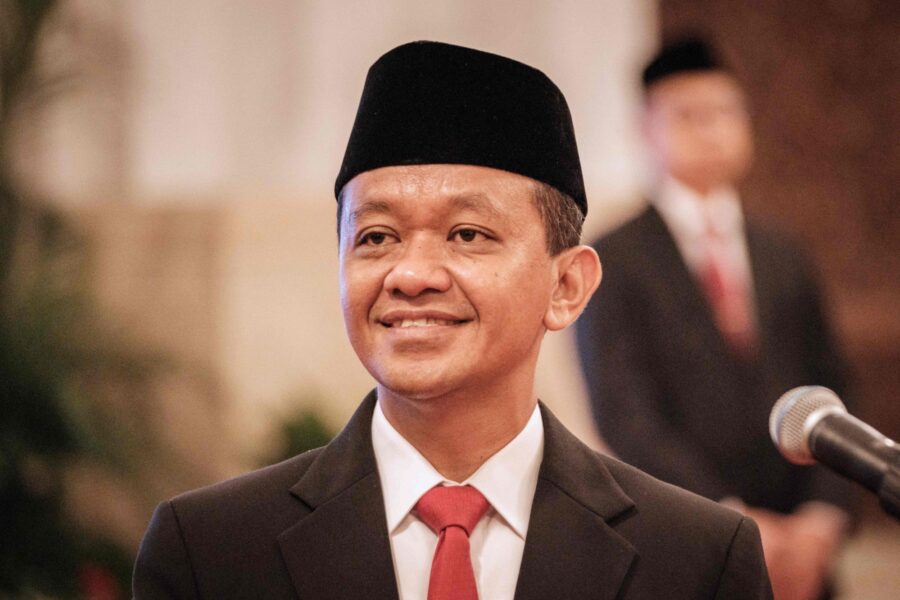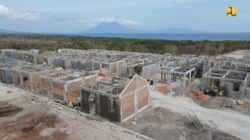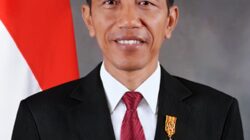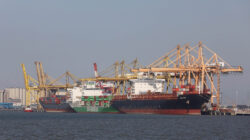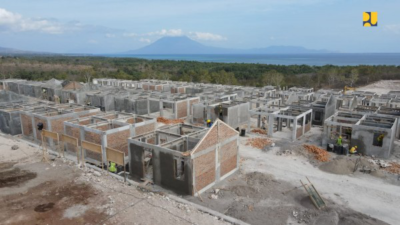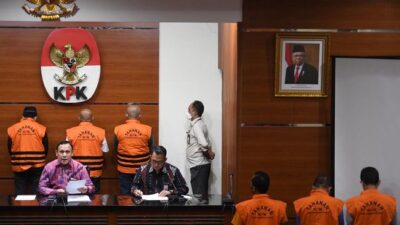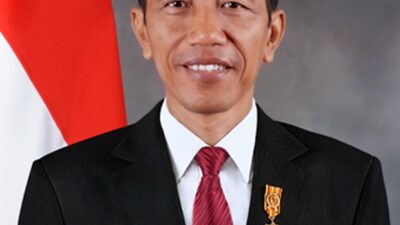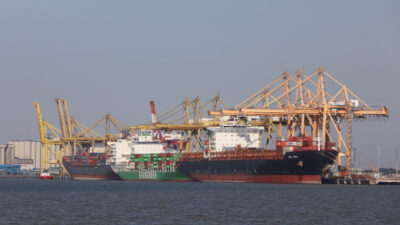IndoNEWSian.com – Indonesia Raps Singapore’s ‘Shameful’ Fuel Prices, Eyeing Shift to U.S. Imports. Despite being an oil producer, Indonesia’s low refining capacity leaves it heavily reliant on Singapore for fuel – but that may soon change Indonesia planning to cut down fuel imports Singapore and then shift to resources from the United States and the Middle East, in a move that analysts see as a bid to reduce its dependence on the neighbouring city state and gain a strategic advantage in trade talks with Washington.
The oil-producing nation could redirect up to 60 per cent of its fuel imports away from Singapore over the next six months as part of a broader diversification strategy, Energy and Mineral Resources Minister Bahlil Lahadalia told reporters on May 9.
Beyond just pricing, there are geopolitical factors at play,” Bahlil stated, emphasizing the necessity for equilibrium with other nations. He further mentioned that Indonesia intends to eventually eliminate all imports from Singapore altogether “someday.
The minister criticized Singapore’s fuel pricing policies, suggesting that even though the country is nearby, it sells fuel to Indonesia at prices comparable to those provided to purchasers in the Middle East.
“[Singapore] does not have oil, but we buy from there. Of the total production, 34 per cent of the market is in Indonesia, [yet] the price is the same as the Middle East. I say this is a shameful strategy,” Bahlil said.
Even though Singapore does not produce crude oil, it serves as a significant refining center and an essential provider of petroleum products throughout the area. Over fifty percent of Indonesia’s oil imports currently originate from this city-state, owing to decreasing production levels which have made it incapable of fulfilling local needs adequately.
From January through April, Singapore provided Indonesia with over 54,000 barrels of gas oil and approximately 8,300 barrels of jet fuel each day, as reported by the governmental body Enterprise Singapore.
Experts highlight that despite being an oil-producing nation, Indonesia’s refining capability—which remains stagnant at approximately 1.1 million barrels per day—falls short of addressing its increasing energy needs. As a result, the country has had to rely heavily on importing fuels, especially for transportation and industrial purposes.
Tariff concessions
Indonesia’s pivot comes amid efforts to reduce or eliminate a 32 per cent “retaliatory” tariff announced by US President
Donald Trump
In April, tariffs were imposed on Indonesian products. These tariffs have been temporarily halted until July as part of ongoing trade discussions. This pause has prompted Jakarta to seek methods to bolster its negotiating stance.
Members of the Association of Southeast Asian Nations have been among the hardest hit by Trump’s tariffs, with Indonesia, Malaysia, Vietnam and Thailand all engaging in urgent trade talks since the levies were announced.
But analysts warn that the scramble for bilateral trade deals with Washington could undermine regional unity and weaken intra-Asean trade.
A research fellow at the Lowy Institute’s Southeast Asia program, Abdul Rahman Yaacob, noted that Indonesia’s fresh approach to importing fuels showcases the broader impact of Trump’s trade policies.
He stated that instead of a unified ASEAN approach, individual member nations are engaging in separate negotiations with the United States due to the primacy of national interests. To decrease their trade imbalance with the U.S., these countries might consider reducing imports from fellow ASEAN states;Singapore, being an open trading hub, presents an accessible option for this strategy.
A few weeks ago, Indonesia’s top economic minister, Airlangga Hartarto, headed a group to Washington D.C. for crucial trade discussions. During these meetings, Indonesia agreed to boost its imports from the United States by around $19 billion, including an allocation of about $10 billion for energy products like crude oil and liquefied natural gas, along with additional trading benefits.
Bahlil mentioned that Indonesia plans to significantly increase its crude oil imports from the United States tenfold as part of their trade goals. Last year, however, the US supplied only 4 percent of Indonesia’s overall oil imports.
Following his announcement, state energy firm Pertamina pledged to follow the government’s directive and explore ways to expand fuel storage capacity to accommodate increased imports from the US.
Jeff Ng, who leads Asia macro strategy at Sumitomo Mitsui Banking Corporation in Singapore, stated that Indonesia’s initiative aimed at shifting focus was primarily about “strategic diversification.”
“Asian imports being rerouted from Singapore to the U.S. can aid in discussions for lowering tariffs,” he explained to This Week in Asia.
Energy security
Although cutting back on Singapore as an oil supplier might satisfy Washington, experts caution that obtaining fuel from the US and the Middle East comes with significant logistical hurdles.
“Careful economic and technical analysis” would be needed, said Putra Adhiguna, managing director at the Energy Shift Institute think tank in Indonesia.
“The added cost of [long-distance] logistics must be evaluated to maintain competitive supply costs, especially considering domestic fuel subsidies and their impact on the state budget.”
Putra also stressed the importance of accelerating domestic refinery construction and tackling corruption in Indonesia’s fuel value chain. “Transparency in procurement must remain a priority,” he added.
The push to diversify fuel imports aligns with Indonesia’s broader energy security goals, a key campaign pledge of President
Prabowo Subianto
. In October, Bahlil emphasised the urgency of the issue, saying: “Singapore does not have oil, but Indonesia imports 60 per cent of its oil from the country. This is utterly mind-blowing to me … If our country goes to war, our oil reserves and storage can only last for 21 days.”
Energy-transition strategist Fabby Tumiwa, executive director at the Institute for Essential Services Reform think tank, said that Jakarta’s shift was motivated by both energy security and geopolitical concerns.
“Indonesia has a high dependency on imports for fuel, so to reduce the vulnerability, we have to diversify the source of our fuel,” he said. “Indonesia is also trying to increase cooperation with the Middle East, so if it can get a good deal there, I think the government will opt for more imports from there.”
For Singapore, losing Indonesia as a customer might involve “some switching costs”, Ng said.
“Changing supply chains may be structurally challenging if done abruptly. For Singapore’s case, there are slight downside risks to demand due to this potential development,” he added.
More Articles from SCMP
Farewell, my pink lady, that beloved smelly but sturdy sofa
Hong Kong’s Cathay vows to instil safety and reporting culture in cadet training
US-China deal no relief for firms as rare earth curbs keep supply chain severed
Kung fu hustle: Hong Kong action film actor turns mentor for stunt performers
This article originally appeared on the South China Morning Post (www.scmp.com), the leading news media reporting on China and Asia.
Copyright (c) 2025. South China Morning Post Publishers Ltd. All rights reserved.

